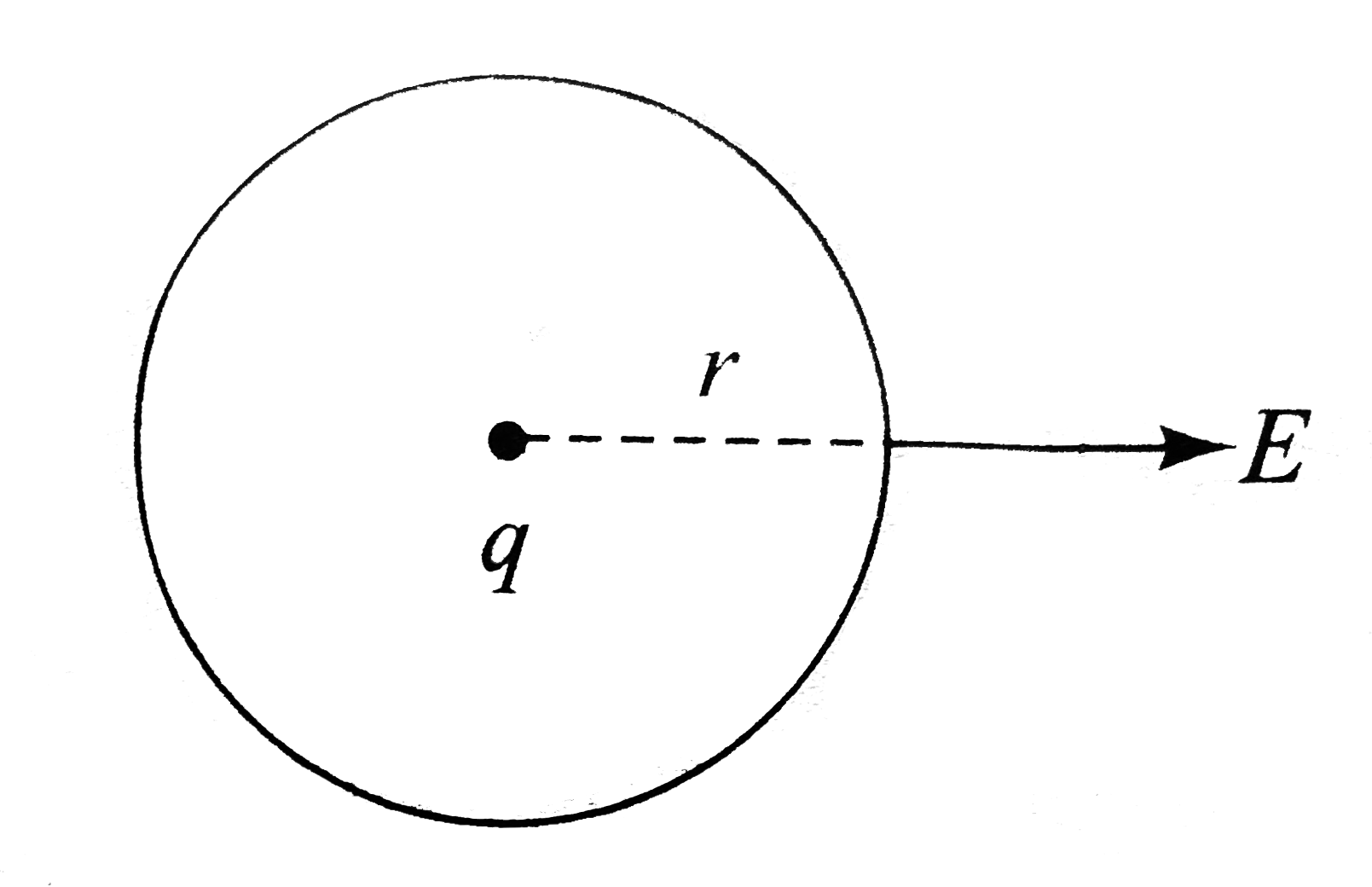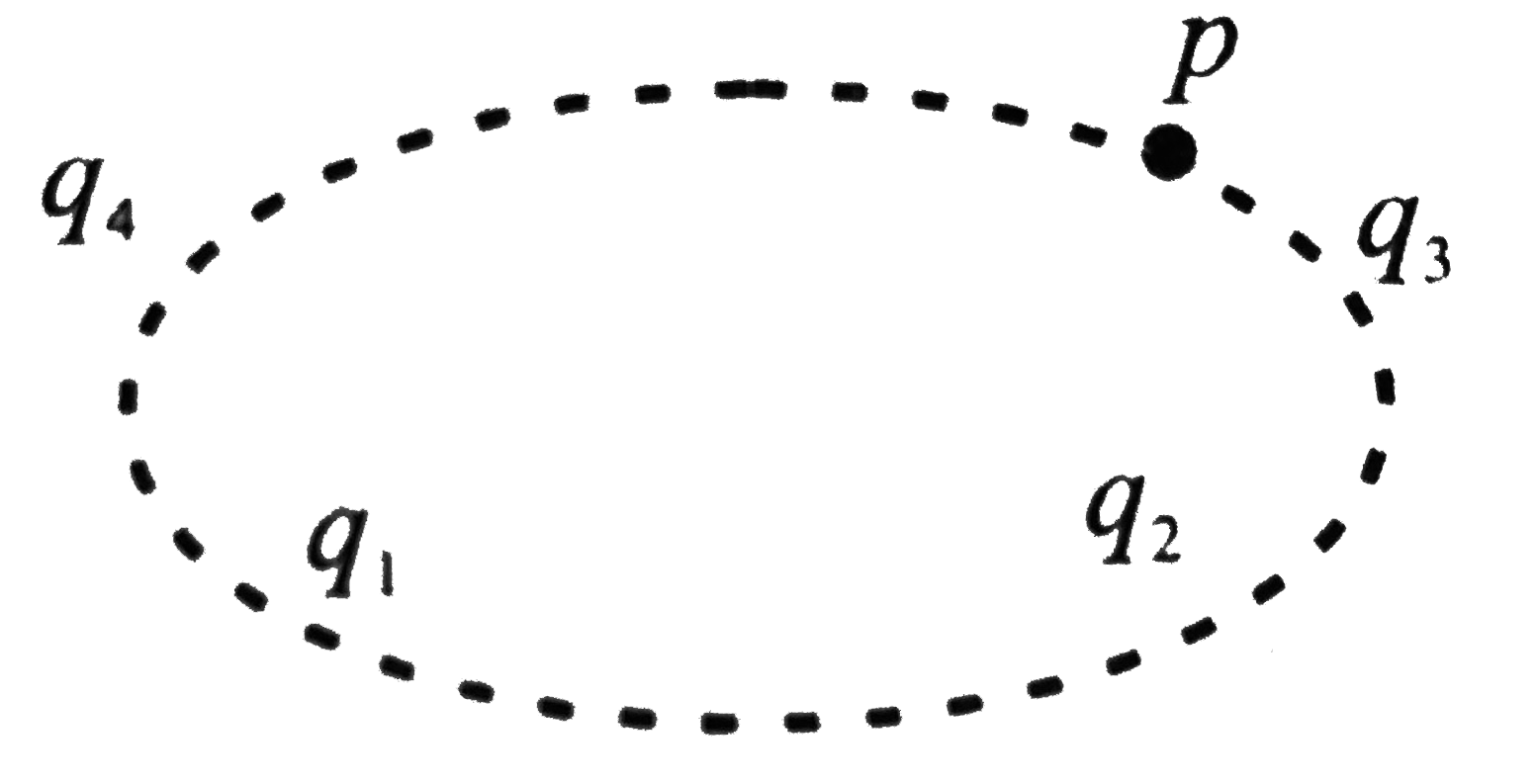If Coulomb's law involved 1r3 (instead of 1r2), would Gauss's law still be true?
Let coulomb 's law involves 1/r3. Now, let us find the
flux due to a point charge.

E=kqr3
ϕ=∫→E⋅d→s=∫kqr3ds
kqr3∫ds=kqr34πr2
ϕ=4πkqr
It means flux depends upon r, which is not true. So
Gauss's law will not be true. Because in Gauss's law,
flux through a closed surface depends upon the charge
present inside and not on the shape or size of the Gaussian
surface.
Topper's Solved these Questions
- BOOK - CENGAGE PHYSICS ENGLISHCHAPTER - ELECTRIC FLUX AND GAUSS LAWEXERCISE - Exercise 2.214videos
ELECTRIC FLUX AND GAUSS LAW
- BOOK - CENGAGE PHYSICS ENGLISHCHAPTER - ELECTRIC FLUX AND GAUSS LAWEXERCISE - Subjective12videos
ELECTRIC FLUX AND GAUSS LAW
- BOOK - CENGAGE PHYSICS ENGLISHCHAPTER - ELECTRIC FLUX AND GAUSS LAWEXERCISE - Example7videos
ELECTRIC FLUX AND GAUSS LAW
- BOOK - CENGAGE PHYSICS ENGLISHCHAPTER - ELECTRIC CURRENT AND CIRCUITEXERCISE - Interger8videos
ELECTRIC CURRENT AND CIRCUIT
- BOOK - CENGAGE PHYSICS ENGLISHCHAPTER - ELECTRIC POTENTIALEXERCISE - DPP 3.515videos
ELECTRIC POTENTIAL
Similar Questions
If magnetic monpole existed, how would Gauss law of magnetism be modified?
View SolutionCoulomb's law states that the electric force becomes weaker with increasing distance. Suppose that instead, the electric force between two charged particles were independent of distance. In this case, would a neutral insulator still be attracted towards the comb.
View Solution
Knowledge Check
- Question 1 - Select One
The Bohr model for the H-atom relies on the Coulomb's law of electrostatics . Coulomb's law has not directly been varified for very short distances of the order of angstroms. Suppos-ing Coulomb's law between two oppsite charge +q1,−q2 is modified to ∣∣→F∣∣=q1q2(4πε0)r21r2,r≥R0
=q1q2(4πε0)r21R20(R0r)ε,r≤R0
Calculate in such a case , the ground state enenergy of H-atom , if ε=0.1,R0=1ÅA−11.4B−17.3C5.9D−23.2 - Question 2 - Select One
If the gravitational force had varied as r−5/2 instead of r−2 the potential energy of a particle at a distance 'r' from the centre of the earth would be proportional to
Ar−1Br−2Cr−3/2Dr−5/2 - Question 3 - Select One
Which of the following statements is not true about Gauss's law?
AGauss's law is true for any closed surface.BThe term q on the ringht side of Gauss's law includes the sum of all charges enclosed by the surface.CGauss's law is not much useful in calculating electrostatic field when the system has some symmetry.DGauss's law is based on the inverse square dependence on distance contained in the coulomb's law.
Obtain the formula for the electric field due to a long thin wire of uniform linear charge density λ without using Gauss's law. [Hint.use Coulomb's law directly and evaluate the necessary integral ].
View SolutionA: Raoult's law applicable for dilute solution only.
R: Henry's law is applicable for solution of gas in liquid.View SolutionWhat is the nature of Gaussian surface involved in Gauss's law of electrostatics?
View SolutionGauss's law and Coulomb's law , although expressed in different forms , are equivalent ways of describing the relation between charge and electric field in static conditions . Gauss's law is ε0ϕ=qencl,when q(encl) is the net charge inside an imaginary closed surface called Gaussian surface. The two equations hold only when the net charge is in vaccum or air .
The net flux of the electric field through the surface due to q3 and q4 isView SolutionGauss's law and Coulomb's law , although expressed in different forms , are equivalent ways of describing the relation between charge and electric field in static conditions . Gauss's law is ε0ϕ=qencl,when q(encl) is the net charge inside an imaginary closed surface called Gaussian surface. The two equations hold only when the net charge is in vaccum or air .
A Gaussian surface encloses two of the four positively charged particles. The particles that contribute to the electric field at a point P on the surface are
 View Solution
View Solution
